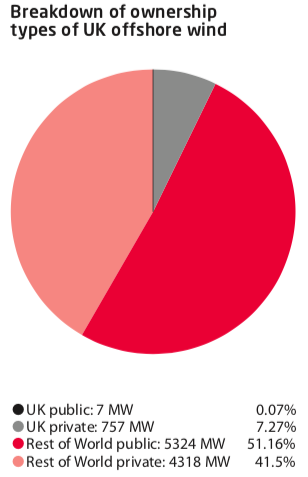May 31st 2020 press release by Scottish Trade Union Congress
Provisional analysis of clean infrastructure projects has outlined the massive benefits of a government funded green stimulus for Scotland, with a £13 billion investment creating almost 150,000 jobs and re-absorbing workers who have lost employment due to the Covid 19 crisis.
The STUC has today published provisional research by Transition Economics into the potential for clean jobs creation in the context of the COVID 19 crisis. The analysis draws lessons from the 2008 Great Recession – including the need to prioritise shovel-ready projects.
Upwards of 50,000 jobs could be created in building retrofit, 40,000 in transport and 20,000 in manufacturing and offshore wind infrastructure. The longer-term supply chain benefits in Scotland would be enormous.
The research is released following the announcement of the paring back of the Job Retention Scheme, threatening a massive increase in redundancies across the economy, ongoing concerns about the future of the North Sea, and while low-carbon supply chain decisions such as the future of the Bi-Fab renewables facility hang in the balance.
In its submission to the Scottish Government’s Advisory Group on Economic Recovery submitted today, the STUC argues for a wide range of measures including “Funding emergency infrastructure stimulus to support Scotland’s economic recovery, including a comprehensive housing programme … and the creation of a national construction and infrastructure company to drive forward change and support high quality employment.” It also calls for investment to support national and municipally owned public transport.
STUC General Secretary Designate Roz Foyer said:
“The need for major infrastructure stimulus becomes more urgent by the day. This research we are publishing is drawn from a wider report on the potential for creating green infrastructure jobs which will be published later in the year. But given the crisis we face there is no time to be lost. We thank the authors Mika Minio-Paluello and Anna Markova for bringing forward these interim conclusions.
“Their analysis shows just that almost 150,000 good quality jobs could be created at the same time as making a real impact on emissions and strengthening Scotland’s renewables supply chain.
“We know that it will still be some time until Scottish industry will emerge from lock-down, so these are the weeks in which we should be planning, and planning big.
“The measures outlined in this report sit along a range of other necessary investments including in key services such as social care. Clearly the level of stimulus we are proposing will require inter-governmental co-operation, but now is the time for those discussions to begin in earnest.”
For further details contact: Dave Moxham 07891 026879
Notes:
Download Provisional Report
The report attached scores potential projects against a range of criteria:
Shovel Readiness; direct Job Creation/Protection; Focus on held-back regions; Builds domestic low-carbon technology & manufacturing; Supports climate transition in hard-to-decarbonise sectors; Contribution to resilience to climate change; Improves economic productivity; Develops domestic skills base; Resilient to re-instated lockdown; Supports health, public services and social fabric




